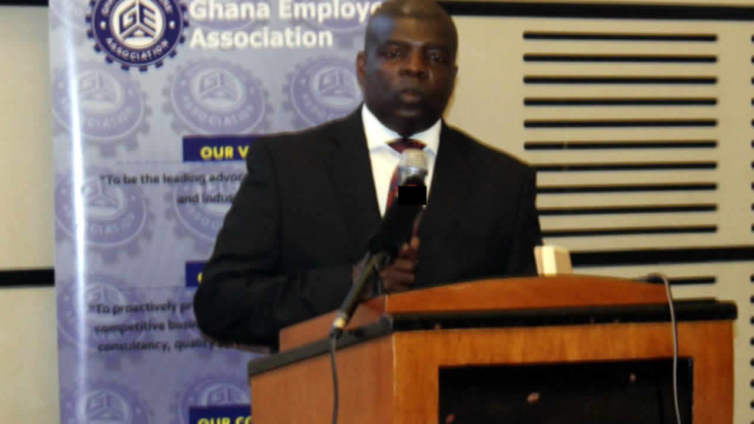
Audio By Carbonatix
The CEO of the Ghana Employers Association, Alex Frimpong, has said that he believes there is little to no gender pay disparities in Ghana’s formal private and public sectors.
Speaking on PM Express on JoyNews, he said that employers are employing people, regardless of gender, who can do the work ascribed and they are being paid the same.
“For the formal sector, when an employee needs to do a piece of work, the issue is who can do the job and at what rate is the person going to get paid for that job? So the issue of gender disparities more or less does not apply in the private sector,” Mr Frimpong said.
“And I can think too for many public sector jobs there's no discrimination in terms of paying for men and women in many organisations,” he added.
Mr Frimpong indicated that today there are many women who have taken on roles that traditionally years ago were done by men and are acing them.
He stated that these women are performing exceptionally well and are being paid for it noting where the worker is delivering, it does not matter whether it's a man or a woman, the pay of the job does not discriminate.
“If you go to places like AngloGold, where I am very familiar with, you have women dominating the engineering force, several mechanical, electronic, and electrical and the record shows that their performance is far better in areas that were previously purely male-dominated field.”
“If you go to places like Nestle, they have an all-female section where the record shows that they are always on target. For these women, they are qualified, they are competent, they are knowledgeable, they are team players, and they are earning similar to what men in these roles earn. Equal pay for work of equal value does not discriminate against men or women.”
The Ghana Statistical Service has revealed that among paid workers in the country, women earn 34.2 per cent less than men.
This data, GSS noted, is from the first quarter of the 2022 Annual Household Income and Expenditure Survey (AHIES).
In a press statement released to celebrate International Equal Pay Day, GSS stated that “the gender wage gap is lowest among paid workers with tertiary education or more where women earn 12.7 per cent less than their male counterparts. The wage gap is highest among workers with basic education (60.1%) followed by workers with no education (54.0%).”
The Service noted that among the population aged 36 to 60 years, women are paid 33.4 per cent less than men.
But, for the age group 15 to 35 years women were paid 30.7 percent less than their male counterparts.
“When comparing sectors of employment, the gender wage gap is highest in the private informal sector where women are paid 58.7 percent less than men. This is followed by the private formal sector with a wage gap of 29.9 percent. The public sector, where women are paid 10.5 percent less than men has the lowest gender wage gap.”
Latest Stories
-
Ghana is rising again – Mahama declares
5 hours -
Firefighters subdue blaze at Accra’s Tudu, officials warn of busy fire season ahead
5 hours -
New Year’s Luv FM Family Party in the park ends in grand style at Rattray park
5 hours -
Mahama targets digital schools, universal healthcare, and food self-sufficiency in 2026
5 hours -
Ghana’s global image boosted by our world-acclaimed reset agenda – Mahama
6 hours -
Full text: Mahama’s New Year message to the nation
6 hours -
The foundation is laid; now we accelerate and expand in 2026 – Mahama
6 hours -
There is no NPP, CPP nor NDC Ghana, only one Ghana – Mahama
6 hours -
Eduwatch praises education financing gains but warns delays, teacher gaps could derail reforms
6 hours -
Kusaal Wikimedians take local language online in 14-day digital campaign
7 hours -
Stop interfering in each other’s roles – Bole-Bamboi MP appeals to traditional rulers for peace
7 hours -
Playback: President Mahama addresses the nation in New Year message
8 hours -
Industrial and Commercial Workers’ Union call for strong work ethics, economic participation in 2026 new year message
10 hours -
Crossover Joy: Churches in Ghana welcome 2026 with fire and faith
10 hours -
Traffic chaos on Accra–Kumasi Highway leaves hundreds stranded as diversions gridlock
10 hours

